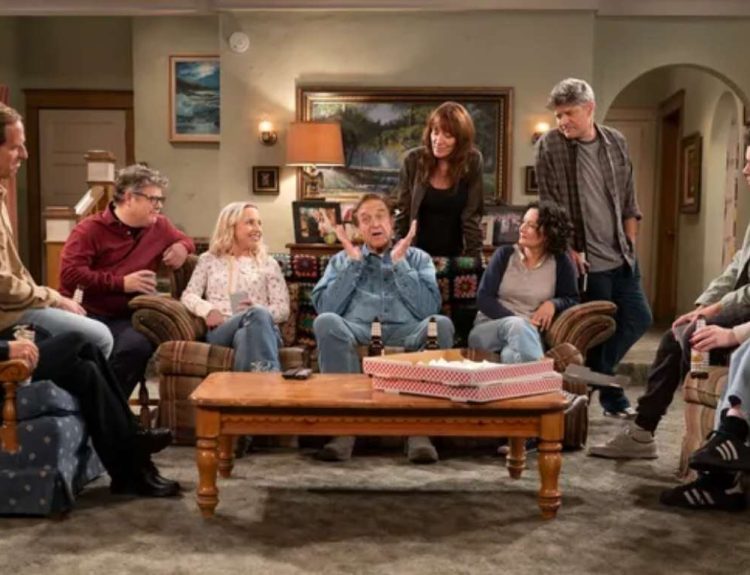Who Was Chris Kyle?
Chris Kyle wasn’t just a Navy SEAL. He was the Navy SEAL chris kyle death for being the most lethal sniper in U.S. military history, credited with 160 confirmed kills.
Born in Odessa, Texas, Kyle grew up with a love for hunting, rodeo, and the outdoors. That love eventually turned into a calling, and he enlisted in the military in 1999, joining the elite Navy SEALs.
A Hero on the Battlefield
Chris Kyle served four tours in Iraq between 2003 and 2009. His chris kyle death and protective instincts earned him the nickname “Legend” among his fellow SEALs and “The Devil of Ramadi” among insurgents. But this wasn’t about taking lives—it was about saving them.
Imagine being the shield that protects your team. That was Kyle. Perched on rooftops for hours, he used his skills not just to eliminate threats, but to ensure that his brothers-in-arms came home alive.
The Burden of Being a Sniper
We often hear about the heroics, but what about the mental load? Being a sniper is like playing God with a rifle—deciding who lives and who dies from hundreds of yards away.
Kyle spoke candidly in interviews and his memoir about the toll this took on him. He wasn’t immune to the horrors of war. PTSD, survivor’s guilt, and the emotional aftermath were real struggles he battled after returning home.
Life After War: Finding a New Mission
When Kyle retired from the Navy in 2009, he could’ve ridden off into the chris kyle death . Instead, he chose to serve in a different way. He wrote American Sniper, a memoir that not only topped bestseller lists but also offered civilians a raw, unfiltered look into the life of a soldier.
More importantly, Kyle began dedicating his time to helping other veterans. He believed in healing through connection—through shared experience. He mentored returning service members, taking them to shooting ranges, hunting trips, and other outdoor activities to help them reintegrate into civilian life.
The Day Everything Changed: February 2, 2013
It was supposed to be just another mentoring trip. On February 2, 2013, Chris Kyle and his friend Chad Littlefield took a young Marine veteran named Eddie Ray Routh to a shooting range at Rough Creek Lodge in Texas.
What happened next was unthinkable.
Routh, suffering from severe mental illness including schizophrenia and PTSD, turned on the two men and shot them both in the back. Neither Kyle nor Littlefield saw it coming.
Who Was Eddie Ray Routh?
Routh was a 25-year-old former Marine who had served in Iraq and Haiti. After returning home, he struggled deeply with mental health issues. His family reported erratic behavior, delusions, and paranoia.
Kyle and Littlefield were aware that Routh needed help, but no one predicted he would become violent. Their goal was to offer him support and companionship—something so many veterans desperately need.
*The Tragic Irony of Kyle’s Death
Here’s what makes Kyle’s story especially heartbreaking: he died trying to help a fellow veteran heal from the very demons he himself had battled.
It’s like a firefighter running into a burning building to save someone, only to be consumed by the flames. Chris Kyle escaped war zones overseas, only to lose his life on home soil—in a place that was supposed to be safe.
The Trial and Conviction of Eddie Ray Routh
The case quickly captured national attention. Routh was arrested shortly after the murders and charged with two counts of capital murder. During his trial, his defense team claimed he was insane at the time of the shootings.
But after intense deliberation, the jury found him guilty in February 2015. He was sentenced to life in prison without the possibility of parole.
Many were left wondering: could this tragedy have been prevented?
Mental Health and the Veteran Crisis in America
Chris Kyle’s death shined a harsh light on a serious issue—mental health among veterans. Thousands of service members return home every year carrying invisible wounds.
PTSD, anxiety, depression, and untreated trauma are rampant. Sadly, many don’t receive the help they need. Whether it’s stigma, lack of access, or simply not knowing where to turn, the system often fails those who served.
Kyle understood this better than anyone. His mission after retirement was to be a lifeline to these men and women. His death shows just how critical that mission is.
Legacy of a Warrior: How the World Remembers Chris Kyle
Despite his tragic end, Chris Kyle’s legacy lives on. His widow, Taya Kyle, became a vocal advocate for military families and mental health reform. She carries the torch he lit.
The book American Sniper was turned into a major motion picture directed by Clint Eastwood and starring Bradley Cooper. The film was a box office smash and reignited conversations around war, trauma, and patriotism.
Kyle’s foundation, the Chris Kyle Frog Foundation, continues his work—supporting service families and building stronger bonds between veterans and their loved ones.
Beyond the Headlines: A Family’s Pain and Perseverance
Behind every fallen soldier is a grieving family. Taya Kyle lost her husband, their children lost a father, and America lost a hero.
Taya has spoken openly about the pain, the anger, and the healing. Her strength, like her husband’s, inspires many. She wrote a memoir titled American Wife that shares her side of the story—the highs, the heartbreak, and the road to resilience.
Why Chris Kyle’s Story Still Matters
Why does Chris Kyle’s story continue to resonate years after his death? Because it’s not just about war—it’s about what comes after. It’s about sacrifice, service, and the scars we don’t see.
His life is a reminder that heroes are human. And his death? It’s a wake-up call that we need to do better for our veterans.
The Conversation We Need to Keep Having
It’s easy to celebrate soldiers when they’re in uniform. But what about when they come home? Chris Kyle’s story isn’t just about one man—it’s about an entire generation of warriors who need our understanding, support, and respect.
We owe it to them to listen, to help, and to honor their journey—not just on Memorial Day or Veterans Day, but every day.
Conclusion
Chris Kyle was more than a sniper, more than a Navy SEAL—he was a husband, a father, a mentor, and a man trying to make peace with his past while helping others do the same. His story isn’t just one of war and heroism, but of compassion, complexity, and an untimely death that continues to shake the nation.
And maybe, just maybe, by remembering Chris Kyle not only as a warrior but as a human being, we can begin to better understand what our veterans truly need when they return home.


